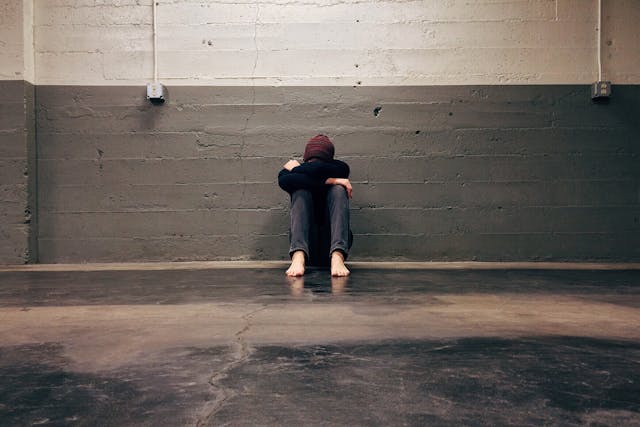Heroin addiction is a severe and challenging condition that affects countless individuals and their families. One of the most critical steps in overcoming this addiction is undergoing a detox program. Detoxification, or detox, is the process of clearing heroin from the body while managing the symptoms of withdrawal. Understanding the various detox programs for heroin addiction can help you or your loved one take the first step towards recovery.
Understanding Heroin Addiction and Withdrawal
Heroin is an opioid drug that is highly addictive. When used, it rapidly enters the brain and binds to opioid receptors, creating a sense of euphoria and pain relief. Over time, the brain becomes dependent on heroin, leading to physical and psychological addiction.
Withdrawal from heroin can be intensely uncomfortable and, in some cases, life-threatening. Common withdrawal symptoms include:
- Intense cravings
- Nausea and vomiting
- Muscle and bone pain
- Sweating and chills
- Anxiety and depression
- Insomnia
Due to the severity of these symptoms, attempting to detox from heroin without professional help is not recommended. Medical detox programs provide the necessary support and care to manage withdrawal safely and effectively.
Types of Detox Programs for Heroin Addiction
There are several types of detox programs available for heroin addiction, each offering different levels of care and support. Understanding the options can help you choose the most appropriate program for your needs.
Medically Supervised Detox
Medically supervised detox is often considered the gold standard for heroin detoxification. In this type of program, patients receive 24/7 medical care and supervision to ensure their safety and comfort throughout the withdrawal process. Medical professionals may administer medications to alleviate withdrawal symptoms and prevent complications.
Common medications used in medically supervised detox include:
- Methadone: A long-acting opioid that helps reduce cravings and withdrawal symptoms without producing the high associated with heroin.
- Buprenorphine: A partial opioid agonist that can ease withdrawal symptoms and reduce cravings.
- Clonidine: A non-opioid medication that can help manage symptoms such as anxiety, agitation, and muscle aches.
Medically supervised detox provides a structured and supportive environment, increasing the likelihood of a successful detoxification.
Outpatient Detox
Outpatient detox programs offer a more flexible approach to heroin detoxification. Patients visit a treatment center regularly for medical check-ups and receive medications to manage withdrawal symptoms. Unlike inpatient programs, outpatient detox allows individuals to continue their daily routines and responsibilities while undergoing treatment.
Outpatient detox can be a suitable option for individuals with a mild to moderate addiction and a stable, supportive home environment. However, it may not be appropriate for those with severe addiction or co-occurring mental health disorders.
Rapid Detox
Rapid detox is an accelerated detoxification process performed under anesthesia. During rapid detox, patients are sedated and given medications to quickly remove heroin from their system. The goal is to reduce the duration and intensity of withdrawal symptoms.
While rapid detox may seem appealing due to its quick results, it carries significant risks, including complications from anesthesia and the potential for incomplete detoxification. It is essential to thoroughly research and consider these risks before opting for rapid detox.
Importance of Comprehensive Care
Detoxification is only the first step in overcoming heroin addiction. A successful recovery requires comprehensive care that addresses the physical, psychological, and emotional aspects of addiction. Detox programs should be part of a broader treatment plan that includes:
Behavioral Therapy
Behavioral therapy is a cornerstone of addiction treatment. It helps individuals understand the underlying causes of their addiction and develop coping strategies to manage triggers and cravings. Common types of behavioral therapy used in heroin addiction treatment include:
- Cognitive-behavioral therapy (CBT): Focuses on identifying and changing negative thought patterns and behaviors.
- Dialectical behavior therapy (DBT): Helps individuals develop skills to manage stress, regulate emotions, and improve relationships.
- Contingency management: Provides incentives for positive behaviors, such as maintaining sobriety and attending therapy sessions.
Support Groups
Support groups, such as Narcotics Anonymous (NA), provide a sense of community and peer support for individuals in recovery. Sharing experiences and challenges with others who have faced similar struggles can be immensely beneficial in maintaining sobriety.
Aftercare Planning
Aftercare planning is a critical component of long-term recovery. It involves creating a plan for ongoing support and treatment after completing the detox program. Aftercare may include continued therapy, support group participation, and regular check-ins with a healthcare provider.
Choosing the Right Detox Program
Selecting the right detox program for heroin addiction is a personal decision that should be made with careful consideration and professional guidance. Factors to consider include:
- Severity of addiction: Individuals with severe addiction may require medically supervised detox for safe and effective withdrawal management.
- Co-occurring disorders: Those with co-occurring mental health disorders may benefit from a program that offers integrated treatment for both conditions.
- Support system: A strong support system at home can influence the choice between inpatient and outpatient detox.
Seeking help from a reputable addiction treatment center can provide the necessary resources and support to make an informed decision.
If you or a loved one is struggling with heroin addiction, New Day Rehab Center in Lancaster, CA, offers comprehensive detox programs and personalized care to support you on your journey to recovery. Contact us today to learn more about our programs and take the first step towards a healthier, sober life. Call us at (877) 734-2244 or visit our website at newdayrehabcenters.com.

